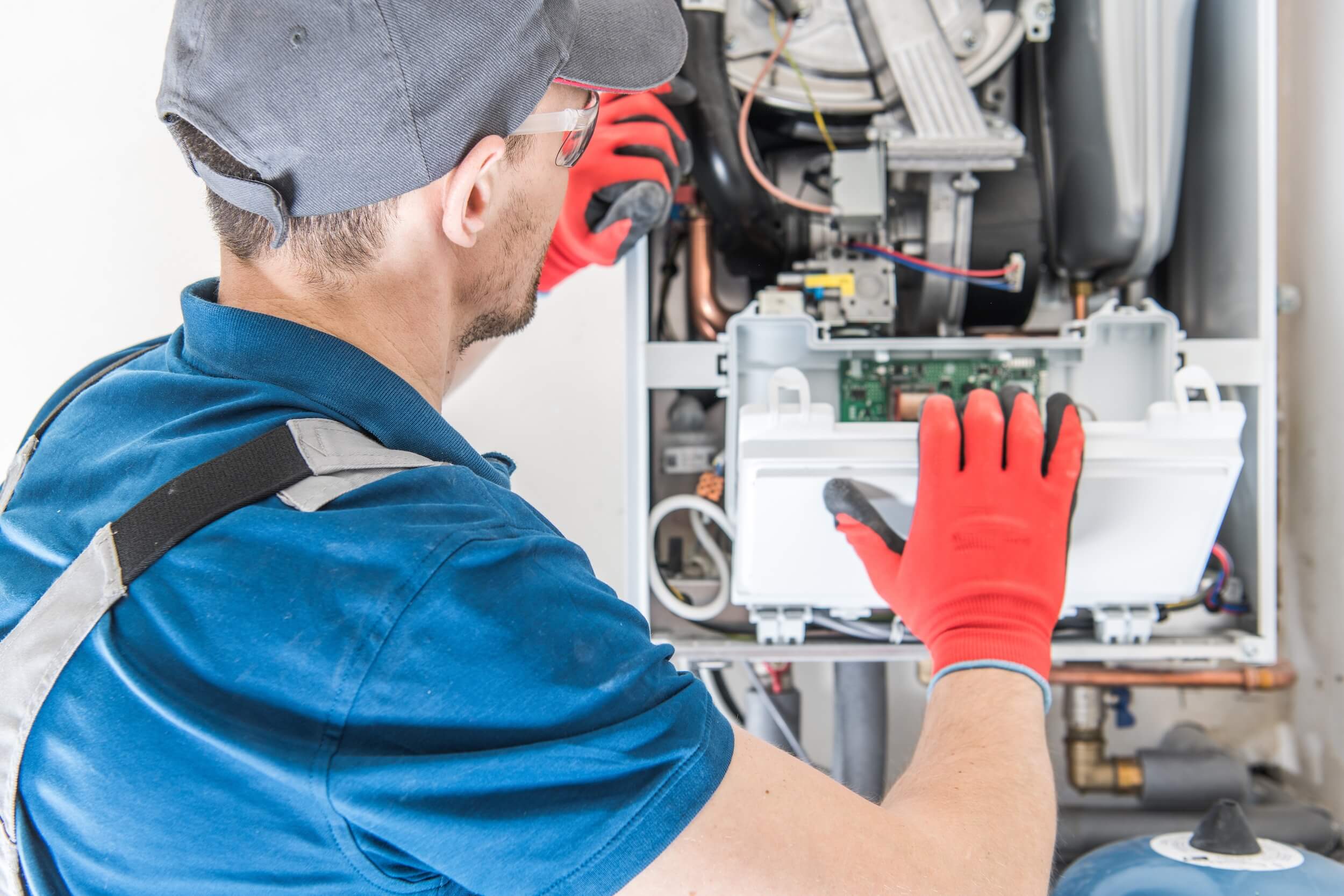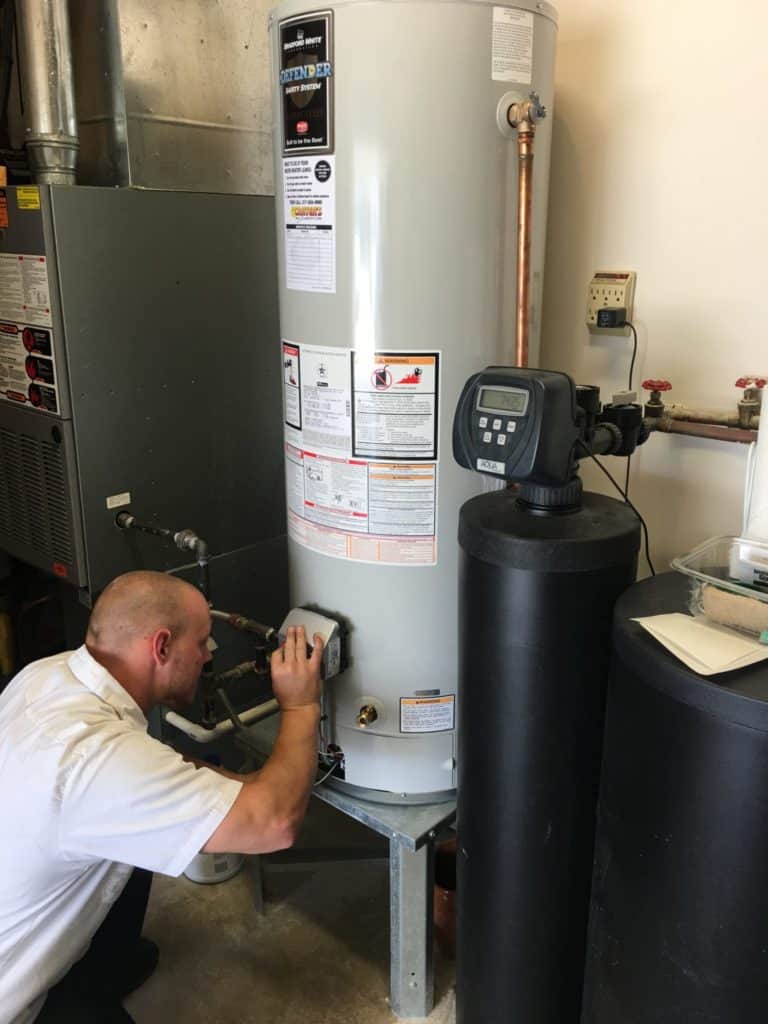Presented here in the next paragraph you can find additional excellent information and facts around Is Your Water Heater Leaking?.

A hot water heater is one of one of the most important fundamental appliances that can be discovered in a residence. With water heaters, you don't require to go through the stress and anxiety of heating water manually every time there is a need to wash, wash, or the recipes. Nevertheless, there is constantly a possibility that your hot water heater would act up as with a lot of mechanical devices.
It is important to note any kind of little breakdown as well as tackle it swiftly prior to points get out of hand. Many times, your water heater begins to malfunction when there is an accumulation of sediments as a result of continual usage. As a safety measure, periodic flushing of your hot water heater is suggested to prevent debris accumulation and stop functional failing.
Common hot water heater emergency situations and how to take care of them
Insufficient warm water
Handling a not enough supply of hot water can be discouraging. It might be that the water heater can't sustain the warm water need for your apartment. To handle this issue, you might try to readjust your heating system's temperature level dial and also await a couple of mins. You can ask for the help of an expert plumber if the trouble persists. You can update your water heater to one with a bigger capacity.
Changing water temperature.
Your hot water heater might begin creating water of various temperatures normally ice scalding or cool hot. In this situation, the first thing you do is to make certain that the temperature is set to the preferred degree. If after doing this, the water temperature level maintains changing during showers or other activities, you might have a damaged thermostat. There could be a demand to change either the home heating or the thermostat device of your hot water heater.
Leaking water heater container.
A leaking container could be an indication of corrosion. It might create damage to the flooring, wall and electric devices around it. You can also be at threat of having your house swamped. In this situation, you must shut off your hot water heater, allow it to cool off, as well as meticulously search for the source of the trouble. Sometimes, all you require to do is to tighten up a couple of screws or pipeline connections in cases of minor leakages. If this doesn't function and the leak persists, you might require to utilize the services of a service technician for a suitable replacement.
Tarnished or odiferous water
When this happens, you require to recognize if the concern is from the water or the storage tank resource. If there is no funny scent when you run cold water, after that you are certain that it is your water heater that is damaged. The stinky water can be caused by corrosion or the build-up of germs or sediments in the hot water heater storage tank. Once you see this, you can try flushing out your container or changing the anode if the problem continues. The feature of the anode is to clean bacteria from your container. Since the anode rod substitute requires a detailed knowledge of your water heater, you will certainly need the assistance of a professional.
Conclusion
Some homeowners ignore little caution as well as minor faults in their water heater device. This just results in more damages and a feasible complete failure of your home appliance. You should manage your water heater mistakes as soon as they come near stay clear of more expenditures and unneeded emergency problems.
With water heating units, you do not need to go through the stress of home heating water manually every time there is a demand to take a bathroom, do the washing, or the dishes. It might be that the water heater can not support the warm water demand for your home. Your water heating system might begin producing water of different temperatures typically ice scalding or cold warm. If there is no amusing scent when you run chilly water, after that you are specific that it is your water heating system that is faulty. The smelly water can be triggered by rust or the accumulation of microorganisms or debris in the water heater storage tank.
Water Heater Burst: Why This Happens And What To Do Next
Water Heater Explosion Warning Signs
Since storage water heaters are made of metal and store large volumes of heated water, they carry an increased risk of leaking or even exploding as they begin to rust at the fittings and seams over time. If the thermostat controlling the water temperature within the tank is faulty, or if mineral buildup inside the water heater prevents the thermostat from sensing the water’s temperature correctly, the water could become overheated. This will expand its volume within the tank, causing it to press at the tank’s fittings and seams. If these fittings and seams are rusted or corroded, the pressure could result in a leak or even an explosion.
Here are some risk factors and warning signs of an increased risk of water heater leak or explosion:
- Your water heater is more than 10 years old.
- Your water heater makes clanking, banging or rumbling noises as it heats up, indicating that sediment has built up and hardened inside the tank.
- There is visible rust on the outside of the water heater, especially located at the pipe fittings or the seams that run down the tank.
- There is rusty water coming from your water heater, indicating that there may be rust building up inside.
- Your water heater is leaking, which could indicate either a crack somewhere in the tank or a malfunctioning temperature-and-pressure (T&P) relief valve.
What To Do When Water Heater Leaks
If you find water dripping or seeping out of your water heater, or pooling around it, it means your water heater is leaking. If you find a leak, it may be best to call a plumbing professional to diagnose the problem and determine how best to handle it. If you choose to tackle it on your own, there are a few things you can do.
TURN OFF THE POWER
Next, shut off the power to the hot water tank at your home’s electrical breaker box. If you don’t shut off the power, the heating elements within the tank could continue to stay hot, which could pose a fire risk.
If you have a gas-powered water heater, you’ll also need to shut off the gas line leading into the tank.
FIND THE LEAK
Now it’s time to determine where the leak is coming from. Likely locations are the T&P valve, the drain valve or one of the pipes or fittings that feed into the top of the tank. If you see any rust or corrosion on the outside of your water heater’s tank, pipes or fittings, these could also be the source of the leak.
REPAIR THE LEAK
Once you determine the source of your water heater leak, you’ll have a better idea of what steps you need to take to fix the problem. It may be a simple fix—such as using a wrench to tighten fittings or replacing the T&P valve—but it may be something more complicated. You may even need to drain the tank, remove the water heater and install a new one.
https://www.abchomeandcommercial.com/blog/water-heater-burst/

I found that blog post about The Importance of Water Heater Maintenance while doing a lookup on the internet. Sharing is nice. Who knows, you may just be doing someone a favor. Thank you so much for going through it.
Toilet overflow? Dial!
Comments on “Responding to the Standard Water Heater Crisis Scenarios”